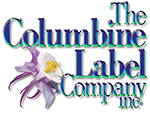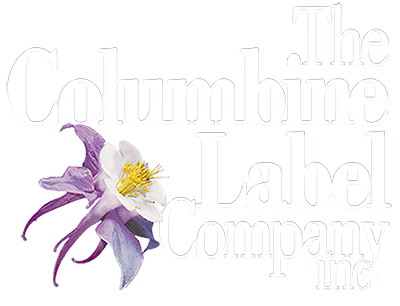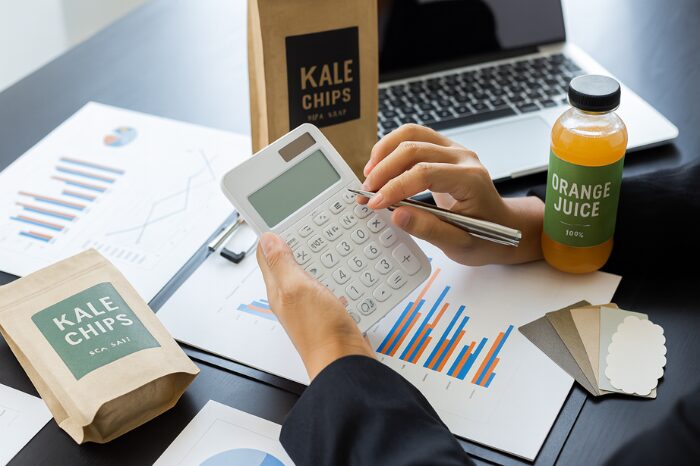What Washington Just Changed—And Why It Matters to You
The “Big Beautiful Bill” may sound like political fluff, but make no mistake—it’s a massive economic and tax package that’s set to shape how small and midsized businesses invest, grow, and stay competitive in the coming years.
If you own a business that makes or sells a product—whether it’s food, supplements, beverages, cosmetics, or something else entirely—this bill affects you.
At Columbine Label, we aren’t economists or tax attorneys, but we do work with hundreds of brands navigating exactly these kinds of changes. We’re keeping a close watch on what this bill means for manufacturing, packaging, compliance, and growth—so we can help you respond quickly and stay ahead.
While labels may seem like a small detail, they’re one of the most powerful tools in your supply chain.
What Is the “Big Beautiful Bill,” Really?
The “Big Beautiful Bill” (as it’s been casually dubbed by lawmakers and the media) is a major tax and economic policy update passed in 2025. It includes extensions of business tax cuts, changes to how companies can deduct equipment purchases, incentives for reshoring manufacturing, and new compliance rules that could impact your packaging strategy.
Here are a few of the most relevant takeaways for product-based businesses:
-
Extended 20% Pass-Through Deduction for LLCs, S-Corps, and other small businesses
-
100% Bonus Depreciation extended through 2027—great news for capital investments
-
Reshoring Incentives for U.S.-based manufacturing
-
Expanded R&D Credits
-
Work Requirement Changes for federal benefits, impacting labor markets
-
New Funding for Regulatory Enforcement (think labeling, packaging, and consumer disclosures)
It’s a lot to unpack—but here’s what it could mean for you.
1. More Room to Grow: Tax Breaks for Equipment, Expansion, and Innovation
If you’ve been thinking about upgrading your production line, adding automation, or investing in new packaging systems, now may be the time. The 100% bonus depreciation rule means you can deduct the full cost of qualifying equipment in the year you buy it—making those big purchases a little less painful.
This could include everything from bottling and filling lines to label applicators and custom automation. We’ve already seen customers exploring higher-speed label application equipment that has required a switch from paper liner to PET liner for durability reasons —and we’re helping them test and spec accordingly.
Our role: We’re ready to collaborate with your operations team to make sure your labels are compatible with any new equipment or formats you introduce. It’s in our mutual best interest that your label application equipment works flawlessly with our labels! Bring us into the conversation early to avoid costly trial-and-error down the road.
2. Reshoring and “Made in the USA” Are Getting a Boost
The bill includes tax incentives for companies that reshore manufacturing or prioritize domestic suppliers. That’s a big shift—and one that aligns with how many of our customers are already thinking, especially in light of supply chain disruptions and tariff pressures over the past few years.
If you’re sourcing packaging or ingredients from overseas, this may be your signal to start exploring local alternatives. That includes labels and packaging components.
What we’re doing: At Columbine Label, we already prioritize U.S.-based materials for our substrates, dies, and inks. We’ve built a resilient, domestic supply chain so you don’t have to stress about delays, tariffs, or availability. This is one way we help you stay nimble in an unpredictable global market.
3. A Tougher Compliance Landscape—Especially for Packaging and Labeling
Here’s something many brand owners miss: when Congress adds funding for regulatory enforcement, packaging gets swept up in the mix.
From PFAS disclosure requirements to FDA nutrition label updates and FTC “green” marketing rules, regulatory expectations around packaging and product communication are tightening. Whether you sell snacks, supplements, personal care, or pet treats, you’ll want to be confident that your labels comply.
We can help: We stay up to date on regulatory changes that affect what can go on your label, how it must be presented, and what materials are allowed. Need FDA-friendly adhesives for a coffee cup lid label? Trying to avoid PFAS in flexible packaging? We’ve got you covered.
4. The Labor Market May Shift—And So Will Customer Demand
The bill includes new work requirements for certain benefits, which may increase labor force participation. For some businesses, this could ease hiring challenges. For others, it may mean changes in customer behavior as more households experience income shifts.
For product makers, this could translate into increased demand, more frequent reorders, and a bigger focus on price-point packaging.
What that means for labels: More SKUs. Smaller runs. Targeted seasonal designs. Private-label expansions. This is where smart label strategy becomes a secret weapon.
5. Private Label and Startup Brands Will Thrive in This Economy
When tax credits flow toward U.S. manufacturing, and regulatory clarity improves, it’s not just the big players who benefit. Small and fast-growing brands will have more breathing room to innovate.
We expect a surge in:
-
Private label programs (especially in food, supplements, and wellness)
-
New product launches from small to midsized manufacturers
-
Niche brands with sustainable or functional claims
Label implications: These brands need packaging that’s quick to produce, cost-efficient in smaller volumes, and visually on-trend. Digital printing and short-run flexibility become key.
We work with dozens of these brands already, helping them pivot quickly, scale smart, and launch with confidence.
Why Is a Label Printer Talking About Tax Law?
Fair question. Here’s why we’re paying attention:
Because when you grow, we grow.
Our business is built around helping you take your products to market efficiently and beautifully. When legislation changes the playing field—whether it’s how you invest, where you manufacture, or what needs to go on your label—we’re one of the first vendors who sees the impact.
We know labels aren’t your biggest line item, in fact they are frequently your least expensive input. But they are one of the final steps in your supply chain—and if they’re wrong, delayed, or non-compliant, everything else stops.
So yes, we’re talking about the “Big Beautiful Bill.” Because it may determine what you launch, how fast you grow, and what kind of packaging your team will need next quarter.
What to Do Now
Here are a few action steps for brand owners and product manufacturers navigating this post-bill landscape:
✅ Talk to your accountant or tax advisor
Ask if bonus depreciation or reshoring credits apply to your business.
✅ Assess your packaging equipment and labeling needs
If you’re upgrading machinery, make sure your labels are compatible.
✅ Review your supply chain for U.S.-made options
Domestic sourcing isn’t just patriotic—it’s now incentivized.
✅ Check compliance for any upcoming label changes
From “healthy” claims to PFAS-free materials, don’t get caught off guard.
✅ Loop your label printer in early
We can help you spec for new SKUs, formats, or regulatory shifts. It saves time, money, and stress.
Final Thoughts: Big Picture, Small Details
The “Big Beautiful Bill” is big-picture legislation—but the day-to-day effects will show up in the small stuff. In your packaging. In your supply chain. In how quickly you can react to new demand.
At Columbine Label, we don’t just print labels—we help brands move faster, stay compliant, and make bold first impressions. If you’re looking at how this legislation might change your plans, let’s talk. We’re not here to give tax advice—but we are here to make sure your packaging strategy keeps up with your business strategy.
Because while Washington may debate the big stuff, we’ll keep our focus on what matters to you: beautiful, reliable, on-time labels that help your product shine.


